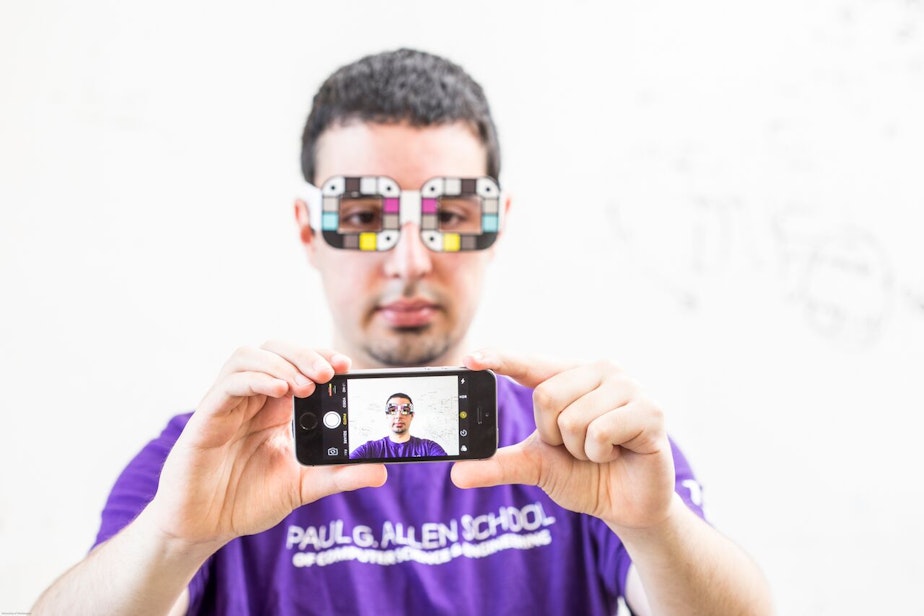Take a selfie, help screen yourself for cancer

University of Washington researchers have created a smartphone app that could help users screen themselves for a range of diseases, including pancreatic cancer, by simply taking a selfie.
When users take a selfie, the BiliScreen app zeros in on the white part of the eyes.
“What the app does is it screens adults for jaundice, which is the yellowing of the skin and eyes,” said Alex Mariakakis, a doctoral student at the University of Washington’s school of computer science and engineering.
Jaundice is caused by the buildup of a compound called bilirubin in the blood. And it’s one of the early symptoms of pancreatic cancer, as well as other diseases.
The app is designed to detect the elevation of bilirubin levels – the slight yellowing of the whites of the eyes – before it's visible to the naked eye.
Sponsored
The hope is that this could lead to earlier detection of diseases.
Mariakakis said pancreatic cancer is of particular interest to the team working on the app because it has a low five-year survival rate.
“It’s usually caught very late. So by the time someone has determined that they have pancreatic cancer their treatment options are very limited. If we could catch it earlier, there might be more that the clinicians can do,” Mariakakis said.
Right now, elevated bilirubin levels can be detected through a blood test. But Mariakakas said the BiliScreen app can provide a non-invasive and easily accessible tool for screening.
“The hope is that if people can do this simple test once a month in the privacy of their own homes, some might catch the disease early enough to undergo treatment that could save their lives,” Mariakakis said in a statement.
Sponsored
Still, there are challenges. For example, different lighting conditions can cause issues. An apple's red hue looks different outside than in a poorly lit room.
The same thing can happen with the eyes, Mariakakis said. Right now the team working on the app uses accessories to combat this problem.
The photo can be taken through a 3D printed box that blocks out surrounding light – it looks kind of like a virtual reality headset or a viewfinder.
Glasses with specific colors printed on the sides are another option. The colors on the rims create a reference point.
An initial clinical study of 70 people showed that the app – when used in conjunction with the 3D printed box – accurately identified elevated bilirubin levels nearly 90 percent of the time.
Sponsored
Mariakakis said they have a long way to go, but they’re working to develop the app further.
The app is described in a paper that will be presented in September at Ubicomp 2017, the Association for Computing Machinery’s International Joint Conference on Pervasive and Ubiquitous Computing.
The research team is currently working on setting up a larger study of the technology.
BiliScreen builds on earlier work from the UW’s Ubiquitous Computing Lab, which previously developed BiliCam. It’s being developed in conjunction with UW Medicine doctors.
